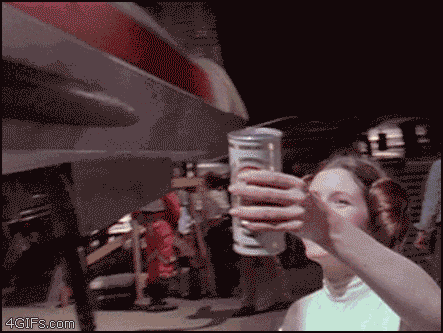- Joined
- Jul 10, 2012
- Messages
- 1,495
- Reaction score
- 1,012
So, I'm actually a fan of many of the MSK techniques we have learned in OMM during my time in school thus far. Aside from the cult aspect and A.T. Still adoration that takes place by some of the osteopath purists in the OPP department, OMT turned out (at the bare minimum) to be a great weekly anatomy review. I was previously involved in the rehabilitation of injured athletes before deciding to go to med school. I love MSK physical medicine and rehab. It's what originated my drive to continue on in medical academia. OMM techniques are used daily in a sports med rehab facility regardless of whether the therapists know what OMM is. A majority of OMM is MSK medicine..which is great and what I signed up for!
However, my munificence towards OMM has taken a drastic turn as we have been hurled into studying the disreputable "cranial" the past several weeks. I find myself questioning my fortitude every day. To make matters worse, they are simultaneously integrating it into our EENT systems lectures as well as our clinical medicine OSCEs and I just about can't take it anymore. I do not understand why they waited until we reached the most bogus material possible to start integrating it into EVERYTHING we do! I question how this (cranial) can even exist in modern medical curricula in the US. I've had professors tell me to "just believe" that I am feeling things during the past couple labs-- Not sure if the professors know (or care), but they are turning people so far off from OMM...even the ones who would like to use the MSK techniques in the future- like me. I am truly starting to feel animosity towards OMM. I legitimately attempted to come in to this year/block with an open mind but the techniques and the theories behind them are so disturbing.
Not sure if the professors know (or care), but they are turning people so far off from OMM...even the ones who would like to use the MSK techniques in the future- like me. I am truly starting to feel animosity towards OMM. I legitimately attempted to come in to this year/block with an open mind but the techniques and the theories behind them are so disturbing.
One of the basic science PhDs (geneticist) gave a lecture on EBM the first semester of our first year and the stuff we are learning in OMM right now is not that. I fear my inability to cease from asking questions or inability to "just believe" that I am feeling things that I don't is going to significantly affect my subjective grade in OMM this semester and the last thing I'd want to have happen is to have a poor performance in OMM hold me back from progressing through my course of study. Seems many of the OMM profs don't take to kindly to students offering up valid questions in regards to some of the more fringy aspects ie. cranial.
Anyhow, I know I am not alone, even within my own class, but does anybody else in the SDN world have experience with this funk I am in?
-Kenobi.

TL;DR--I liked OMM, then cranial happened. Help.
However, my munificence towards OMM has taken a drastic turn as we have been hurled into studying the disreputable "cranial" the past several weeks. I find myself questioning my fortitude every day. To make matters worse, they are simultaneously integrating it into our EENT systems lectures as well as our clinical medicine OSCEs and I just about can't take it anymore. I do not understand why they waited until we reached the most bogus material possible to start integrating it into EVERYTHING we do! I question how this (cranial) can even exist in modern medical curricula in the US. I've had professors tell me to "just believe" that I am feeling things during the past couple labs--
One of the basic science PhDs (geneticist) gave a lecture on EBM the first semester of our first year and the stuff we are learning in OMM right now is not that. I fear my inability to cease from asking questions or inability to "just believe" that I am feeling things that I don't is going to significantly affect my subjective grade in OMM this semester and the last thing I'd want to have happen is to have a poor performance in OMM hold me back from progressing through my course of study. Seems many of the OMM profs don't take to kindly to students offering up valid questions in regards to some of the more fringy aspects ie. cranial.
Anyhow, I know I am not alone, even within my own class, but does anybody else in the SDN world have experience with this funk I am in?
-Kenobi.

TL;DR--I liked OMM, then cranial happened. Help.





